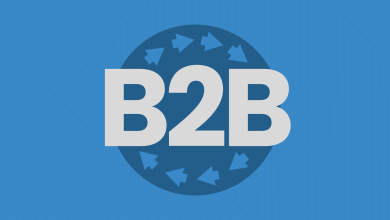In today’s rapidly evolving digital landscape, the traditional practice of cold calling might seem like a relic of the past. Real estate marketing, like many industries, has embraced digital tools, from online listings to social media advertising. Yet, despite the allure of these digital strategies, cold calling remains a potent and relevant technique for real estate professionals. This comprehensive article explores why cold calling is still a vital component of real estate marketing in the digital age.
Relevance of Cold Calling in Real Estate Marketing’s Digital Era

Let’s delve into the key reasons why cold calling in real estate marketing’s digital era is of great significance:
- Establishing Human Connections
In the digital era, we have witnessed a profound shift towards virtual communication and automated interactions. While these methods are undoubtedly efficient, they often lack the personal touch that can be crucial in the real estate industry. Cold calling services allow real estate agents to establish genuine, human connections with prospective clients. When a real estate agent picks up the phone to make a cold call, they bridge the gap between the digital world and the real world. The sound of a live voice on the other end of the line can be a refreshing change from the impersonal emails, texts, and automated messages that inundate our inboxes.
- Targeted Outreach
One of the critical advantages of cold calling is its ability to facilitate highly targeted outreach. In a world where data is abundant and easily accessible, real estate professionals can use advanced databases and research tools to identify potential leads based on specific criteria. Whether it’s location, property type, budget, or other demographic factors, cold calling allows agents to pinpoint individuals who are more likely to be interested in their services.
- Overcoming Objections in Real Time
In real estate transactions, objections and concerns are part of the course. Prospective clients often have questions or doubts about the buying or selling process. While digital marketing channels offer ways to address these concerns, they typically involve delayed responses, which can sometimes exacerbate the anxiety of clients.
Cold calling, on the other hand, allows real estate agents to address objections in real time.
- Personalized Communication
Personalization is a buzzword in the world of marketing, and for good reason. In the realm of real estate, every client is unique, with individual preferences, goals, and circumstances. Cold calling provides a platform for personalized communication that is tailored to each prospect’s specific situation. During a cold call, an agent can engage in a two-way conversation, asking questions to gather information about the prospect’s needs and desires.
- Nurturing Relationships
Real estate transactions often involve long-term relationships between agents and clients. An agent’s role extends beyond the initial sale, encompassing aspects like property management, investment advice, and referrals to other professionals in the industry. Cold calling serves as the initial point of contact in the form of real estate call center services. Agents can follow up with past clients through cold calls, offering market updates, reminding them of important dates (such as property anniversaries or milestones), and aiding with any real estate-related needs that may arise.
- Generating Immediate Leads
In the fast-paced world of real estate, timing can be the difference between securing a deal and missing out on an opportunity. Cold calling excels at generating immediate leads and opportunities. When a potential seller is on the verge of listing their property or a buyer is actively searching for a home, a well-timed cold call can connect them with a real estate agent who can meet their needs promptly. The key to successful lead generation through cold calling is staying attuned to market trends and being proactive. Real estate agents must be ready to make those calls when they sense a potential client is ready to act.
The Conclusion
In a world dominated by digital marketing tools, cold calling remains a valuable and effective strategy in the real estate industry. It allows real estate professionals to establish human connections, conduct targeted outreach, address objections in real time, personalize communication, nurture relationships, generate immediate leads, and stand out in a crowded digital landscape.
Rather than being viewed as an outdated practice, cold calling should be seen as a complementary tool in the real estate marketing toolkit. When integrated strategically with other digital marketing efforts, it can be a powerful driver of success in the competitive real estate market. In essence, cold calling bridges the gap between the digital realm and the real world, providing a personal touch that is essential for building trust and fostering lasting client relationships in the digital age.
Read more :





